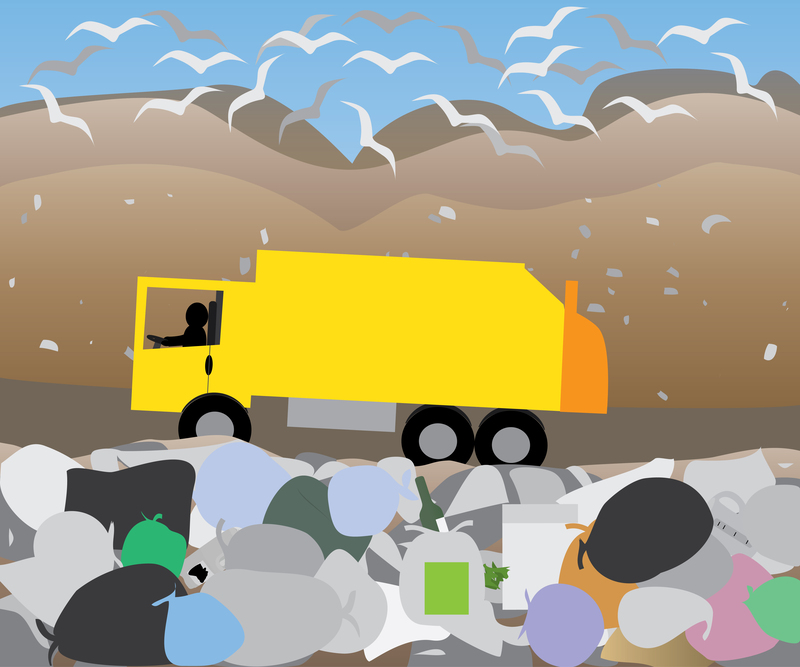Green waste, which includes garden refuse, clippings, and food scraps, is a significant part of our regular waste stream. Effectively managing and reducing green waste is crucial for environmental sustainability. In this article, we'll explore the top 10 strategies to help you reduce your green waste and contribute positively to the environment.
1. Composting: Transforming Waste into Valuable Resources
Composting is one of the most effective ways to reduce green waste. It involves decomposing organic matter into nutrient-rich soil amendments. By starting a compost pile or using a compost bin, you can turn fruit and vegetable scraps, grass clippings, and leaves into useful compost for your garden, thus closing the nutrient loop.
Benefits of Composting
- Reduces landfill waste
- Enriches soil, helping retain moisture
- Suppresses plant diseases and pests

2. Grasscycling: Nature's Way of Lawn Care
Grasscycling involves leaving grass clippings on your lawn after mowing instead of bagging them. This practice allows the clippings to decompose quickly, returning valuable nutrients back to the soil and reducing the need for chemical fertilizers.
How Grasscycling Helps
- Reduces yard waste significantly
- Saves time and energy
- Improves lawn health naturally
3. Utilizing Mulch: Protect and Nourish
Applying mulch is an excellent strategy for managing green waste. You can use barks, leaves, and other organic materials to cover the soil surface around plants. Mulch helps in reducing weed growth, retaining moisture, and moderating soil temperature.
Advantages of Mulch
- Reduces soil erosion
- Enriches garden soil over time
- Encourages the presence of beneficial organisms
4. Smart Landscaping: Plant Wisely
Smart landscaping includes using native plants that require minimal maintenance and create less green waste. These plants are adapted to the local climate, reducing the need for fertilizers, pesticides, and watering, while still providing beauty and ecological benefits.
Smart Plant Choices
- Consider perennials over annuals
- Use ground covers to minimize lawn space
- Select drought-resistant and native species
5. Implementing Worm Farms: Nature's Decomposers
Worm farming, or vermicomposting, is a method of composting using worms to process organic waste and create high-quality compost, known as worm castings. This system is particularly beneficial in processing food scraps.
Worm Farming Benefits
- Produces nutrient-rich compost with minimal odor
- Efficiently reduces food waste
- Compact and suitable for indoor or outdoor use
6. Community Initiatives: Sharing and Caring
Participating in local community gardening or waste reduction programs can significantly decrease individual green waste. By sharing resources and knowledge, communities can collectively compost and manage waste more effectively.
Community Benefits
- Encourages collaborative sustainable practices
- Enhances community bonds
- Optimizes the use of shared spaces
7. Kitchen Waste Reduction: Smart Usage and Storage
Reducing food waste at the source is a crucial strategy. By planning meals, storing food correctly, and utilizing leftovers creatively, you can minimize the amount of food that turns into waste.
Effective Strategies
- Practice meal planning and portion control
- Store food properly to extend its life
- Repurpose leftovers into new meals
8. Recycling Green Waste: Turn It into Energy
Facilities that offer green waste recycling can convert organic material into renewable energy sources, such as biogas. You can contribute by segregating and disposing of your green waste correctly for recycling purposes.
Recycling Benefits
- Generates renewable energy
- Reduces overall waste footprint
- Supports local waste management infrastructure

9. DIY Solutions: Creative Reuse
Innovatively reuse green waste materials in your garden or home. For example, wooden branches can be used to create rustic garden features, or food scraps can be turned into natural dyes and cleaners.
Creative Reuse Ideas
- Build garden edges or paths with branches
- Create plant markers from twigs
- Develop homemade cleaning solutions
10. Educate and Advocate: Spread Awareness
Finally, understanding and promoting awareness of green waste reduction is essential. Participate in workshops, share tips with friends, and advocate for sustainable practices in your community.
Awareness and Advocacy
- Host workshops on waste reduction
- Share knowledge via social media
- Encourage policy changes for waste management
In conclusion, reducing green waste not only helps create a healthier environment but also supports sustainable living practices. By implementing these strategies, you can play a vital role in minimizing waste and nurturing our planet.